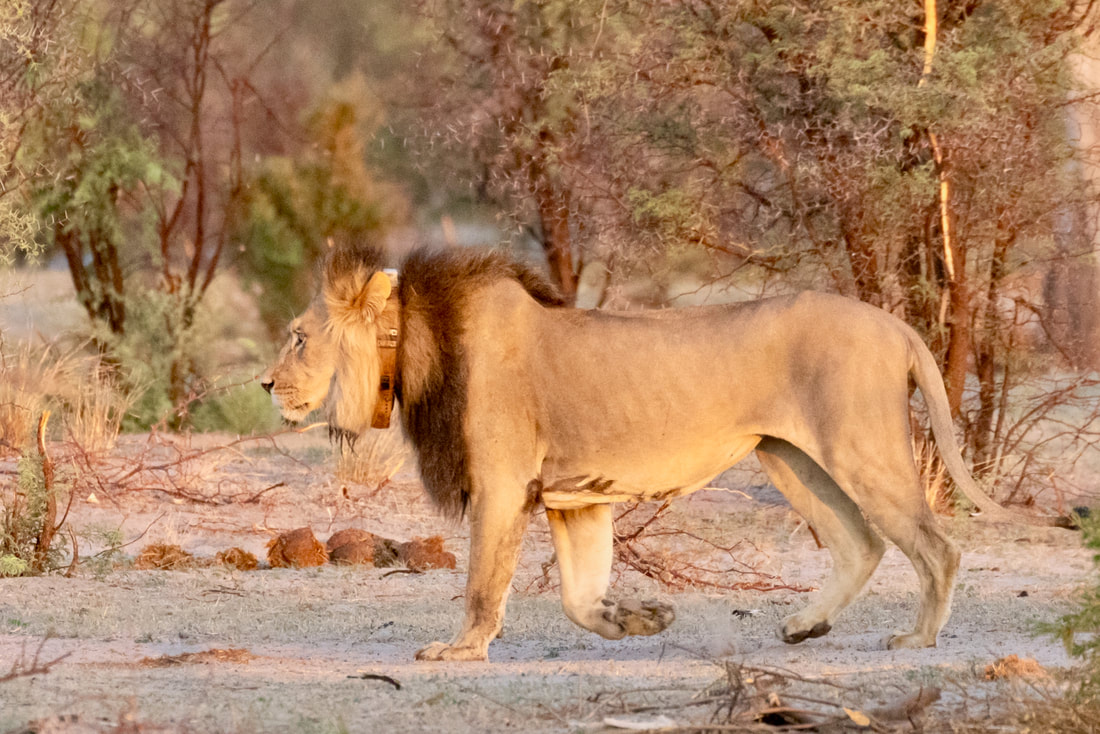CCB have been working to alleviate human-wildlife conflict in the Ghanzi District for almost 20 years, however, in focusing our efforts on cheetah conflict, our target areas have historically been around the commercial cattle ranches and the rural communities south of Ghanzi town. The Ghanzi District, minus the impressive Central Kalahari Game Reserve encompasses an area of 65,110km2 – a work site roughly the size of Lithuania. It is challenging to cover this large expanse, and we are constantly adapting to where our support is needed most. This is the case at the moment with the community of New Xade, which sits just outside of the western boundary of the Central Kalahari Game Reserve. Being so close to the reserve, there is wonderful biodiversity to be had around this village, but with many farmers and expanding cattleposts around the village, it is also a hotspot for human-wildlife conflict. It is not usually cheetahs that are causing conflict in these areas, but lions, leopards and African wild dogs which are causing the most strain for farmers here.
Thankfully, late in 2023 an opportunity arose where we could expand our conflict alleviation work to support the community of New Xade. CCB was engaged by Birdlife Botswana through the UNDP Kgalagadi and Ghanzi Drylands Ecosystem Project (KGDEP) to trial innovative approaches to reduce human-wildlife conflict (HWC) in the village of New Xade. The main aim of the project is to engage with the community, especially farmers, to discuss issues relating to human-wildlife conflict in the area and to discuss potential conflict mitigation options. Upon engagement with the community, a selection of relevant conflict mitigation tools will be chosen by CCB and the communities to be trialled in selected cattle posts around the village between May and August 2024.
CCB staff visited 13 of the New Xade cattle posts between the 25th and 31st January to engage with farmers and to conduct rapid assessment surveys to gather information on carnivore species causing conflict, levels of human-wildlife conflict, current methods used for conflict mitigation and ideas about potential conflict mitigation methods that could be trialled. A total of 77 people from 33 cattle posts participated in the exercise. The CCB survey team was accompanied to all cattle posts by Mr Matenego Mothukhuthe, the chairperson of the New Xade Farmers Committee. The information collected during these surveys has helped us with developing innovative approaches to reduce human-wildlife conflict in the area. CCB are focused on finding cost-efficient and effective approaches that will help reduce predation risk to livestock, whilst improving productivity for cattle-post farmers.
Results from the survey showed that farmers identified five carnivore species that posed the biggest threats to livestock in the area (lions, wild dogs, leopards, jackals and caracals). Respondents consistently reported that even though most farmers kraaled their livestock at night (kept their livestock in enclosures at night), stragglers left out overnight were much more vulnerable to predation by nocturnal carnivores. Herders were reluctant to venture out after dark to recover cattle that didn’t come into the kraal before sunset, as they were afraid of being out in the bush after dark for fear of encountering lions and elephants. Consequently, a lot of predation reportedly occurred overnight out in the bush.
Considering the specific circumstances of these cattleposts, it was decided that one of the best solutions to their conflict would be to enlist teams of eco-rangers who will be based at the cattleposts and who will help round up stray cattle at dusk, help deter carnivores if they are threatening livestock and who will report accurately on mitigation measures, livestock movements and carnivore presence. CCB has worked together with farmers in the pilot project area to select local teams of eco-rangers who are familiar with the area. The trials will also include a variety of deterrent devices, including lights mounted at kraals to help deter any wildlife that may approach kraals at night and using desirable supplement feeds to ensure that all cattle come into the kraals at night. Smallstock (goat and sheep) farmers in the area will be supported by CCB to incorporate livestock guarding dogs into their farm management to reduce depredation on goats and sheep. Other mitigation measures that will be trialled include GPS ear tags for monitoring cattle movements.
Participants of the surveys were generally welcoming and open to suggestions of innovative approaches to help mitigate their conflicts with wildlife. Most of the farmers and herders were fascinated by the innovations proposed and are looking forward to the trials beginning in the next few months.



 RSS Feed
RSS Feed
